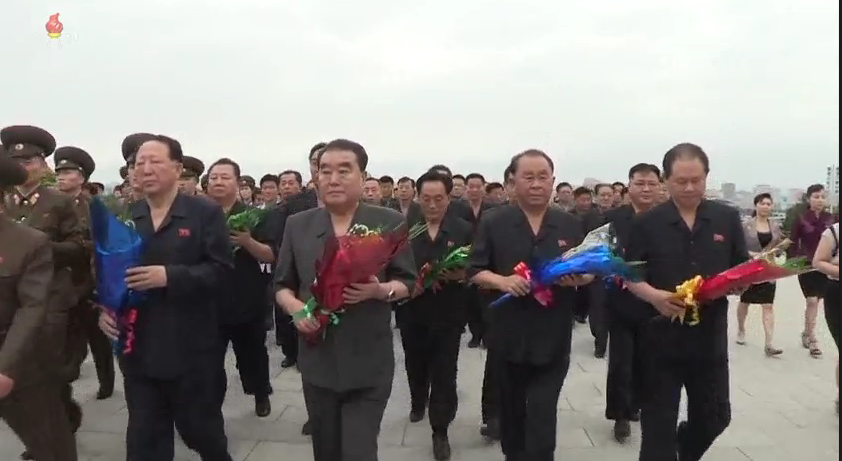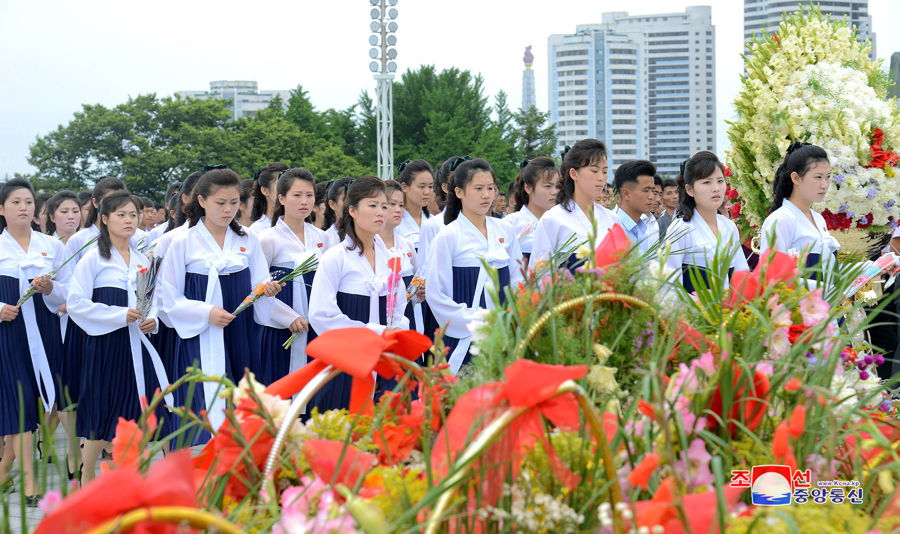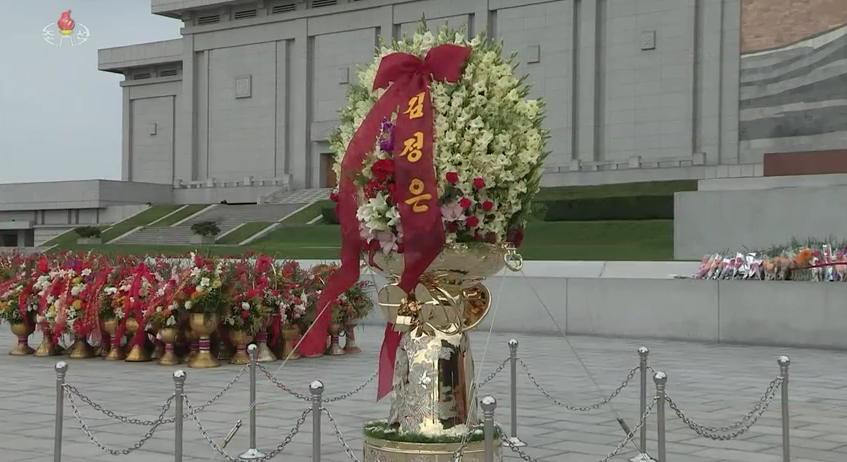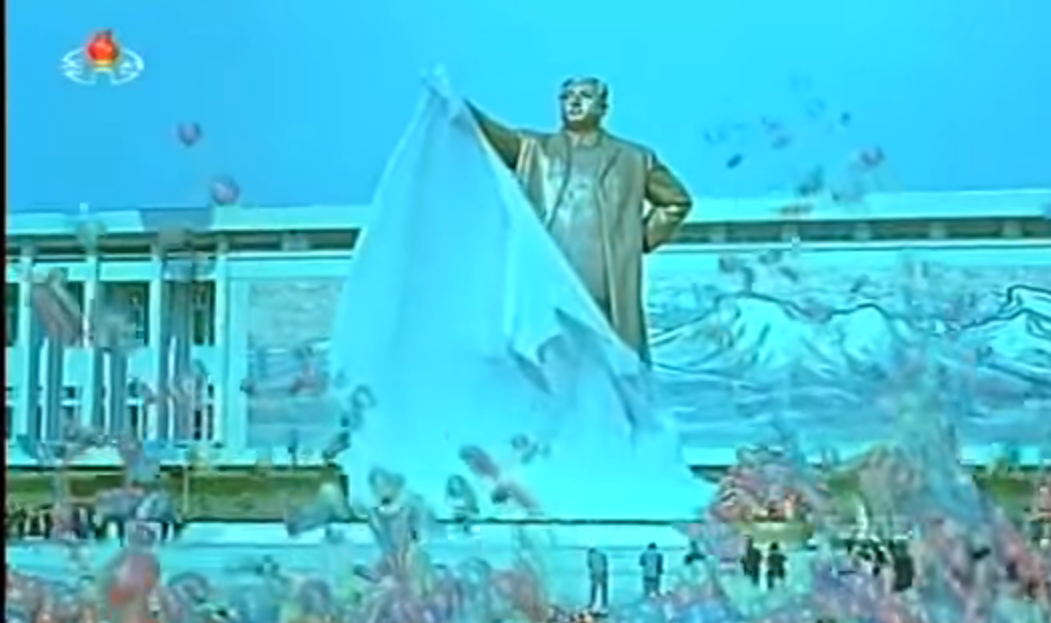Floral Presentations and Film Screening Mark KIS’ Death Anniversary

During January 8 (Saturday) and January 9 (Sunday), officials of the Workers’ Party of Korea (WPK) and DPRK Government, officers and service members of the Korean People’s Army (KPA) and the internal security services and DPRK citizens marked the 24th anniversary of the demise of DPRK President and founder Kim Il Sung (Kim Il-so’ng) by delivering floral baskets and bouquets and paying their respects at KIS and Kim Jong Il (Kim Cho’ng-il) statues and icon monuments.


A floral basket from Kim Jong Un (Kim Cho’ng-u’n) was placed at the base of the KIS and KJI statues in front of the Museum of the Korean Revolution on Mansu Hill in central Pyongyang. Also delivered there were floral baskets from the WPK, the KPA, various DPRK Government institutions, workers’ and social organizations, KPA and Korean People’s Internal Security Forces units and various industrial sites, production units and schools based in Pyongyang. A floral basket from the Anti-Imperialist National Democratic Front’s Pyongyang office was also sent along. Similar floral presentations and gatherings were held throughout Pyongyang at Mansudae Art Studio, Kim Il Sung University, the Ministry of the People’s Armed Forces, Kim Il Sung Military University and other locales, as well as in provincial capital cities, county seats and other administrative divisions throughout the DPRK.

On July 9 (Sunday), members of the DPRK central leadership attended a screening of the documentary film Our Leader the People’s Palace of Culture. The film “deals with the revolutionary career and feats of the President who made great contributions to the human cause of independence” and “contains historic scenes showing the President who embarked on the road of revolution in his early years, founded the immortal Chuch’e idea, led to victory the two revolutionary wars and social revolution of various stages, thus building on this land a powerful socialist country independent in politics, self-supporting in the economy and self-reliant in defense and creditably solving the issue of succession of the revolutionary cause.”
According to KCNA, the audience “admired the benevolent image of the President who restlessly visited a number of villages and families all over the country on a people-bound train all his life, and took good care of the people as their real father would do.”
View Original Article